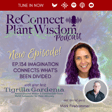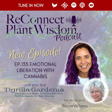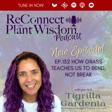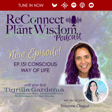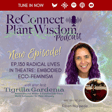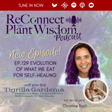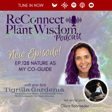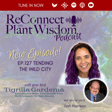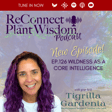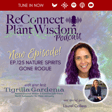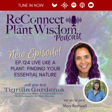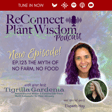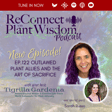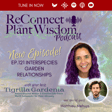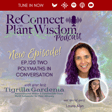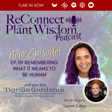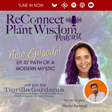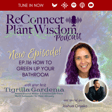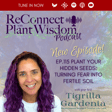
Ep.118 Parenting in the Climate Crisis with Bridget Shirvell
Parenting in today’s world can feel like walking a tightrope—how do we prepare our kids for a planet facing so much change without scaring or overwhelming them? In this conversation with journalist and author Bridget Shirvell, we discuss the art of raising children who feel connected to nature, empowered to problem-solve, and resilient in the face of the climate crisis.
Bridget shares insights from her book Parenting in a Climate Crisis: A Handbook for Turning Fear Into Action, along with practical ways families can nurture curiosity, confidence, and deep kinship with the natural world.
We also talk about how these lessons aren’t just for kids.
Topics Covered about Parenting in a Climate Crisis
➡️ How to raise resilient, curious kids in a rapidly changing climate.
➡️ Practical tips for connecting children (and parents) to nature every day.
➡️ Why learning from other kin—plants, animals, fungi—shapes deeper listening and problem-solving.
➡️ How parenting for the planet teaches adults as much as it teaches kids.
Chapters
00:00 Introduction
08:10 Rethinking personal-care habits & consumption
16:15 Glass vs Plastic: truth about packaging and recycling
19:42 Fairphone
24:30 Product redesign: aluminum tubes & zero-waste swaps
32:45 Consumer power: influencing supply chains for change
41:00 Hidden health risks: EMF, toxins & bathroom air quality
57:40 Daily green-bathroom rituals & mindset shifts
65:00 Closing reflections
Resources Mentioned
🌱 Naturally Conscious Community
🌱 Plant Wisdom Book Club and Sprouts Writing and Creativity Group
Expanded Show Notes
☝🏽ReConnect with Plant Wisdom podcast Ancient and modern knowledge from biology to spirituality about the wondrous ways plants help you lead a Naturally Conscious life.
Subscribe here and on your favorite podcast player.
👉🏽 Join the Naturally Conscious Community to nourish human-plant relationships
// Get to Know Me, Tigrilla //
// Let's Work Together //
// Shop from EcoConscious Partners //
Bridget's Book: "Parenting in a Climate Crisis" | Shop UK | Shop US
More Partners
Opening and Closing music by @Cyberinga and Poinsettia.
// Let's Connect on Social // Facebook | Instagram | LinkedIn | Youtube

